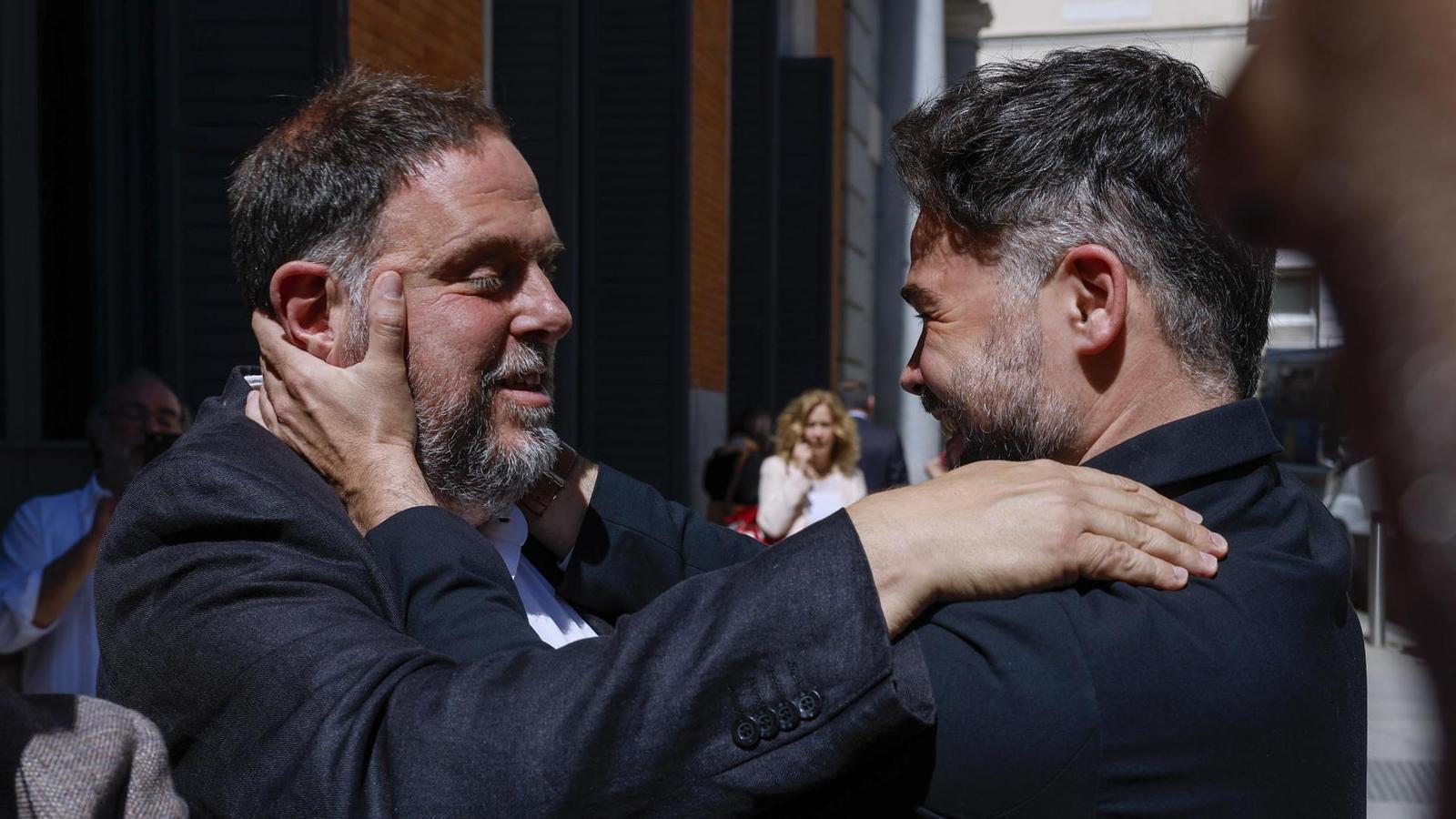Rufián becomes an uncomfortable piece of clothing for Junqueras
The common front proposed by the spokesperson in Congress highlights the differences with the national leadership of ERC.


BarcelonaWhen ERC recruited Gabriel Rufián, one of its objectives was to bring into its ranks a profile that could attract a Spanish-speaking electorate that the party had historically failed to reach. This was, in fact, one of Junqueras's obsessions with expanding the pro-independence electoral base. The current Republican spokesperson has been one of the players the ERC leader has most carefully guarded in recent years, even when Rufián deviated from the party's established script. The complicity has been reciprocal: Rufián was one of Junqueras's main supporters in last year's primaries. However, according to various sources consulted by ARA, this relationship has soured: the ERC leader in Congress has become an uncomfortable player for Junqueras. The straw that broke the camel's back this week was Rufián's proposal. to create a common front of "left-wing and nationalist" parties, knowing that the leadership does not support it.
According to several sources consulted, Junqueras and Rufián continue to maintain regular dialogue, but no one hides the fact that disagreements exist. Most sources admit that his figure has been an asset to the party and his media projection is an incentive. However, what some voices within the leadership do not understand is why Rufián publicly defends his theses beyond the script set by the leadership of Esquerra. Just yesterday, after the spokesperson in the Parliament, Ester Capella, denied on Tuesday any left-wing alliance in the State, Rufián insisted on the same idea. Far from trying to downplay the public clash, he reaffirmed himself on X: "The independence movement, the left-wing sovereignty movement, has historically demanded a plurinational left that understands and helps it: I say that enough is enough with waiting and that we make it do it again, and they will do it to us again." birth of Podemos. And immediately afterward, he said: "Private calculations and interests will probably prevent this historic commitment from happening, but then the questions to be asked will be clear." A message that could be interpreted as directed at his own party, annoyed that after the controversy, he would once again highlight his disagreement with Oriol Junqueras's leadership. Rufián's entourage, however, assures that this does not damage his relationship with the party leader.
This isn't the first time this has happened. Rufián has already had several clashes with the previous leadership, especially with Marta Rovira's team. In fact, the leader in Congress failed to adhere to one of the directives issued by the party's former general secretary: that all members of Congress had to make their interventions in Catalan Once the use of the co-official languages was permitted, Rufián continues to do so in Spanish for now.
Now, does this mean that Rufián's position is in danger? This political distancing would not translate into a decision to remove him, despite some speculation: for the moment, the national leadership does not doubt that he will be the candidate for the next Spanish elections. For example, when the crisis over the Cerdán case arose and there was a possibility that the elections would be brought forward, the leadership of Esquerra discussed who could be the top candidate and agreed that he would follow Rufián.
The defense of Patxi López
The discomfort the Republican leader has generated this week is not the first in recent months. Without going any further, during Pedro Sánchez's appearance on July 9 regarding the Cerdán case, one of the first messages he issued from the Congressional podium was in defense of the Socialist spokesperson in the Lower House, Patxi López. "Wash your mouths [PP and Vox] when you talk about Patxi López or Jesús Eguiguren, who have brought in the coffins of your colleagues while you literally hid, and if there is the peace that exists in that country, it is because there were people who rolled up their sleeves and negotiated, as soon as you shut up," he stated. His words received applause from the entire Socialist bloc, from Sumar, but not from the EH Bildu deputies, due to the historically poor relationship that the former Basque Basque leader Patxi López has had with the Basque nationalist left. In fact, his words didn't please several Esquerra members either, who considered him unnecessary, according to several sources.
For a few months, Rufián combined his position in Congress with that of a councilor in Santa Coloma de Gramenet, his hometown. In the last municipal elections, Oriol Junqueras chose him to challenge the longtime Socialist mayor, Núria Parlon, for the mayoralty. The operation didn't quite work; Esquerra improved its results, but it was nowhere near as successful as the current Interior Minister. Rufián wanted to keep his position in Congress, where he feels most comfortable. It's from that platform that he will continue to send his messages, whether or not they follow the party line.
